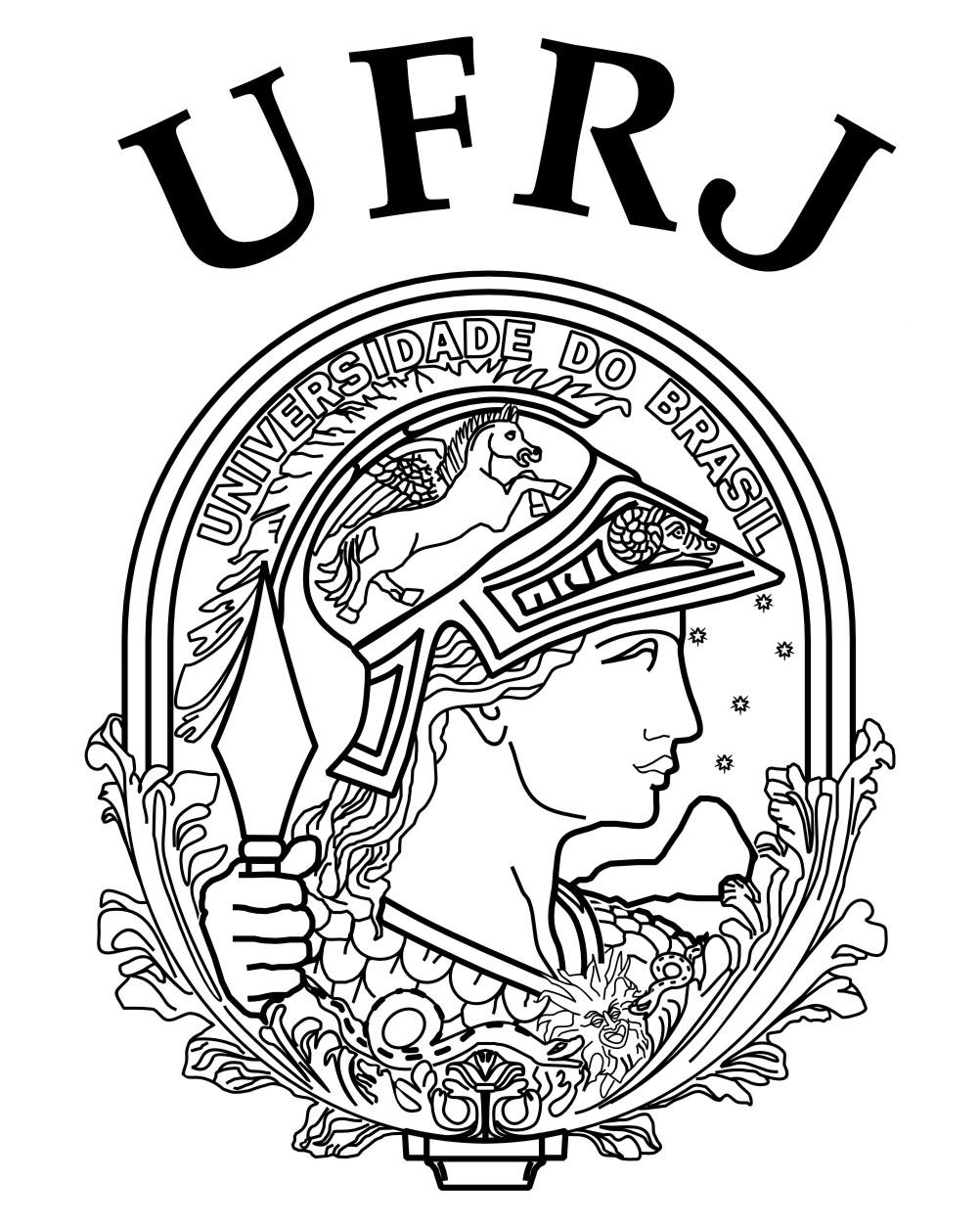










This Pan-American Advanced Study Institute consists of a winter
school with two workshops. The winter school, which will have
about 40 participants, covers a broad range of theoretical
and applied areas of spatial and spatio-temporal statistics, with
emphasis on climate, air pollution, and ecology. In parallel with
the winter school there will be two advanced workshops. The winter
school students are expected to also participate in the workshops.
One workshop will be dealing with nonstationary covariance
structures, and is aiming at a comparison of the various
approaches available in the literature. The other workshop covers
methods for multivariate spatial statistics. It will be possible
to participate only in the workshops, but such participation is by
invitation only. .
The schedule will leave the afternoons open for outdoor
activities, as winter in this part of Brazil generally is quite
pleasant.
Here are the results of a questionnaire before the conference started about the background of the participants.
Sunday World Cup: 13 SWI-ECU 16 FRA-HON 19 ARG-BIH
Monday, June 16
World Cup: 13 GER-POR 16 IRN-NIG 19 GHA-USA
8:30-9 Registration and introduction.
9-9:45 Geostatistics
(Guttorp) Basic introduction to stationary spatial prediction
(kriging) with focus on the Gaussian situation. Classical and
Bayesian approaches.
0 1 4 8 17
9:45-10 Coffee break
10-11 Practicum: geoR
(Ribeiro Jr.)
0 2 3 10 14
11-11:45 Application: Air quality
(Rodrigues)
0 1 6 14 8
12 Lunch
17-17:45 Covariance functions (Jun)
Bochner's theorem and positive definite functions. Representation
of isotropic covariance. Classes of covariance functions.
Compactly supported covariance. Spherical models. Estimation of
covariances.
0 3 6 14 9
17:45-18 Coffee break
18-19:45 Practicum and Application: Housing data
analysis in geoR (Schmidt)
0 1 11 11 7
Tuesday, June 17
World Cup: 13 BEL-ALG 16 BRA-MEX 18 RUS-KOR
9-9:45 Nonstationary models I
(Sampson) Deformation approach to spatial nonstationarity.
Thin-plate splines. Bayesian estimation.
0 4 6 14 9
9:45-10 Coffee break
10-10:45 Application: French precipitation
(Meiring)
0 2 10 12 7
10:45-11:45 Practicum
(Sampson and Meiring)
0 2 10 12 7
12 Lunch
18-18:45 Nonstationary models II
(Calder) The kernel approach. Weighted averages. Basis function
expansions.
1 4 6 13 7
18:45-19:00 Coffee break
19-20 Practicum (Calder)
1 14 10 7 9
20-20:45 Application: Ozone and wind:
including covariates in covariances. (Schmidt)
0 2 8 10 10
Wednesday, June 18
World Cup: 13 AUS-NED 16 ESP-CHI 18 CAM-CRO
9-9:45 Gaussian Markov Random
Fields (Lindström) Sparse precision matrices. Gaussian MRF
simulation and estimation. The stochastic PDE approach. Integrated
nested Laplace approximations.
0 4 4 11 12
9:45-10 Coffee break
10-11 Practicum: R-INLA (Bolin & Lindström)
0 3 8 8 11
R code
11-11:45 Application: Confidence
intervals for contour lines (Bolin)
0 5 5 11 9
12 Lunch
Nonstationary workshop
17-18:20 Opening session: Overview of nonstationary
covariance models
Orietta Nicolis: REDUCED RANK SPATIAL COVARIANCE: A MULTIRESOLUTION APPROACH
18:20-18:40 Coffee break
18:40-20:00 : Group discussions.
Group 1: Space-time means
Group 2: Visualization
Group 3: Space-varying variogram coefficients
Group 4: Method performance metrics
Thursday, June 19
World Cup: 13 COL-CIV 16 URU-ENG 19 JPN-GRC
9-9:45 Spatiotemporal processes
(Gamerman) Singular value decomposition. Space-time covariance.
Dynamic linear models.
0 1 7 17 7
9:45-10 Coffee break
10-11 Practicum: SpatioTemporal
(Lindström)
R code
0 1 8 13 8
11-11:45 Application: Wetlands assessment (Hoeting)
0 1 8 12 9
Nonstationary workshop
17-18:20 Housing data (spatial)
Bolin: Non-gaussian fit
18:20 Coffee break
18:40-20:00 Air quality data (space-time)
Jun and Jeong
Friday, June 20
World Cup: 13 ITA-CRI 16 SWI-FRA 19 HON-ECU
9-9:45 Multivariate models
(Banerjee) Kronecker model. Co-regionalization with spatially
varying coefficients. Hierarchical approach.
0 1 8 13 9
9:45-10 Coffee break
10-11 Practicum: RandomFields (Schlather)
0 1 13 7 8
11-11:45 Application: Sea surface temperature
estimation (Sansó)
0 1 9 13 8
12 Lunch
Nonstationary workshop
17-18:20 Temperature (global space-time)
Jun: Global analysis.
Furrer: Global analysis
18:20-18:40 Coffee break
18:40-20:00 Simulated data sets
20:00-??? PARTY (pool area)
Saturday, June 21
World Cup: 13 ARG-IRN 16 GER-GHA 18 NIG-BIH
Nonstationary workshop
9-10:00 Simulation data results
Meiring: Deformation simulation
Risser: Process convolution simulation
Lindström: Simple analysis of Higdon set. R code
Sampson: Warps and biorthogonal grid for irregularly spaced Higdon simulation
10:00-10:20 Coffee break
10:20-11:30 Group discussions
White paper structure
Visualization
Simulation design
Estimation and comparison
Analysis
11:30-12:00 Group reports and conclusions
12 Lunch
Saturday afternoon through Sunday are open for excursions etc.
There will be a boat tour (for R$70) on Sunday. We meet at the reception by 9:30; the boat leaves at 10:00 from the pier at the near edge of downtown.
(CANCELLED--possibly Tuesday afternoon)
Sunday World Cup: 13 BEL-RUS 16 KOR-ALG 19 USA-POR
Monday, June 23
World Cup: 13 NED-CHI, AUS-ESP 17 CAM-BRA, CRO-MED
9-9:45 Extremes (Cooley) Generalized extreme value distributions.
Generalized Pareto
distribution. Max-stable processes. Composite likelihood.
0 0 4 6 21
9:45-10 Coffee break
10-11 Practicum: SpatialExtremes
(Ribatet)
0 0 9 9 11
11-12 Application: Risk assessment and
extreme weather (Bravo)
0 1 9 9 11
12 Lunch
Multivariate workshop
19-19:50 Opening session: Sudipto Banerjee: On complex spatial dependencies: Low-rank
cross-covariance models
19:50-20:10 Coffee break
20:10-21 Bo Li: An approach to modeling asymmetric multivariate
spatial covariance structures
Tuesday, June 24
World Cup: 13 ITA-URU, CRI-ENG 17 JPN-COL GRC-CIV
Boat tour in the morning (We meet at the reception by 9:30). Lunch follows at the hotel.
14:00 Jony Pinto Jr. Point process with spatio-temporal heterogeneity
14:15 Abhirup Datta: Hierarchical nearest neighbor Gaussian process
models for large spatial datasets
14:30 Farzaneh Safavimanesh: Bayesian inference for the Poisson
line cluster point processes
14:45 Henrike Häbel: Spatial statistical analysis of the
micro-structure of nano-silica particle gels
15:00 Somak Dutta: Matrix-free conditional simulations of Gaussian
Markov random fields and their applications
15:15 Soojin Roh: Multivariate localization methods for ensemble
Kalman filtering
15:30 Coffee break
15:45 Michael Horrel: Half-Spectral Space-Time Models and a Natural Condition
16:00 Jorge Mazzeo: Spatial Organization of Neuroepithelial Cells
during Embryo Development
16:15 Zach Weller: Hurricane Forecast Assessment
16:30 Behnaz Pirzamanbein: Reconstructing the past land cover using fossil pollen estimates
16:45 Erin Schliep: Climate-driven individual tree growth modeling fusing two data sources
17:00-17:10 Short break.
Multivariate workshop
17:10-18:00 Martin Schlather: Conditional Modelling of Extreme
Wind Gusts by Bivariate Brown-Resnick Processes
18:00-18:50 Tanya Apanasovich: Matérn Class of Cross-Covariance
Functions for Multivariate Random Fields
18:50-19:10 Coffee break
19:10-20:00 Xiangping Hu: Multivariate Gaussian random fields
with SPDEs
Wednesday, June 25
World Cup: 13 NIG-ARG, BIH-IRN 17 HON-SWI ECU-FRA
9-9:45 Spatial point processes
(Särkkä) Cluster models. Self-exciting models. Markovian point
processes. Residual analysis.
1 0 4 10 17
9:45-10 Coffee break
10-11 Practicum: Spatstat
(Särkkä and Guttorp)
1 2 3 10 13
11-11:45 Application: Forestry (Dean)
Movie
0 2 7 9 9
12 Lunch
Multivariate workshop
17-17:50 Paul Sampson: A novel dimension reduction approach
for spatially-misaligned multivariate air pollution data
17:50-18:40 Reinhard Furrer: Multivariate modelling and
efficient estimation of random fields with application to roller
data
18:40-19 Coffee break
19-19:50 Open discussion on strategies for large multivariate
spatial data sets including estimation and co-kriging
Thursday, June 26
World Cup:13 POR-GHA USA-GER 17 KOR-BEL ALG-RUS
9-9:45 Misalignment
problems (Craigmile) Hierarchical models. Downscaling.
Upscaling. Change of support.
0 0 3 6 21
9:45-10 Coffee break
10-11 Practicum: Chesapeake Bay (Craigmile)
Solutions R code
0 0 5 11 9
11-11:45 Application: Up- and
downscaling of regional climate models (Guttorp)
0 0 6 11 8
12 Lunch
Multivariate workshop
17-17:50 Alexandra Schmidt: Modelling
multivariate counts varying continuously in space
17:50-18:10 Coffee break
18:10-19 Open discussion on theoretical treatments of
multivariate models--are there any ways forward to formalizing the
benefit of co-kriging under a multivariate model. Also strategies
and ideas/approaches for including multivariate modeling in a
spatial statistics class.
W 6/18 - Sa 6/21
In most papers in the nonstationary covariance model literature,
comparisons are only made to stationary (or even isotropic)
models, not to other nonstationary approaches. There is a need for
an organized comparison of these models, and an assessment of what
models work in what circumstances. Furthermore, few of these
models have easily accessible software available, whence a
comprehensive software library is needed. The purpose of the
workshop is to compare the different methods, develop a library of
software, and produce a white paper with recommendations as to
what methods are most useful in what situations. P`articipants in
this workshop will have prepared in advance by analyzing a few
given data sets using their particular approach. In addition, the
method(s) of comparison of the approaches will have been
predetermined in discussion between the participants. The workshop
will last four days. The first two days will be presentations of
results. The third day will be devoted to producing an outline of
a paper detailing the comparison of the methods, while the final
day will be spent discussing how to set up the software library.
M 6/23 - Th 6/26
The intent of this workshop is to make participants aware of
different approaches to multivariate spatial models, how to
analyze multivariate spatial data, and what software is available
or needs to be developed. The goal of the workshop is to produce a
white paper on multivariate spatial statistics. Like the other
workshop, it will last four days. This will be a more traditional
type of workshop, with lectures and discussion groups.
Lelys Bravo de Guenni, Universidad Simón Bolívar, Venezuela
Charmaine Dean, University of Western Ontario, Canada
Peter Guttorp, University of Washington, USA
Eliane Rodrigues, Universidad Nacional Autónoma de México
Alexandra Schmidt, Universidade Federal do Rio de Janeiro, Brazil
Local organization:
Thaďs Fonseca, UFRJ, Rio de Janeiro
Nancy Garcia, UNICAMP, Campinas
Alexandra Schmidt,UFRJ, Rio de Janeiro
Workshops:
Nonstationary covariance models
Peter Guttorp, University of Washington, USA
Wendy Meiring, University of California at Sant Barbara, USA
Paul Sampson, University of Washington, USA
Alexandra Schmidt, Universidade Federal do Rio de Janeiro, Brazil
Multivariate spatial models
Will Kleiber, University of Colorado Boulder, USA
Eliane Rodrigues, Universidad Nacional Autónoma de México
Hotel
Atlântico Búzios
The hotel registration page is now closed. Please do not register
directly with the hotel, as you may not be able to get the
negotiated rates. Please note prices have been updated
November 12, 2013.
Room costs includes registration fee, breakfast and lunch. Daily
prices
A bus will transport participants from the Rio de Janeiro
International Airport to the hotel on June 15, and back on June
27. Details of the bus(es) will be announced by late May. Note
that nationals from some countries (including the US) will need a
visa in order to enter Brazil. This can not be obtained at the
port of entry, but must be secured in advance. See this site for
details.
Information
about Búzios, and some information
about what to do.